
TBI on the CSRD: ‘Collecting the right data is increasingly important’
Listed companies have been required to report for the Corporate Sustainability Reporting Directive (CSRD) since January 2024; other companies will do so from January 2025. This EU directive requires reporting on sustainability performance. To comply with the directive, sustainability must be integrated into all aspects of business operations: governance, strategy, risk management, internal control environment, and internal and external reporting. TBI has been preparing for it for years. We spoke about it with Sanne de Wolf, Group ESG Controller at TBI Holdings.
The reporting obligation under CSRD has already been applied to listed companies since 2024. From 2025, companies with more than 250 employees will have a turnover of more than EUR 50 million per year and/or assets of more than EUR 25 million on the balance sheet.
Preparing for the CSRD
One of the companies that has been preparing for the CSRD for some time is TBI, not only because of legal obligations but also because of intrinsic motivation. After all, TBI is a group of more than 21 engineering, construction and infrastructure companies with a heart for society. TBI Holdings B.V. is a private limited company with an independent foundation as its sole shareholder. This is called steward owned. Because TBI is not listed on the stock exchange, the companies are not driven by the shareholder fads of the day. TBI focuses on the long-term and its social impact.
CSRD: Environment, Social, Governance
‘This way of doing business is very much in line with what the EU is aiming for with CSRD,’ explains Sanne de Wolf. ‘Sustainability is still often seen as CO2 reduction, but sustainability is much more than that. The CSRD is also about the social aspects of your company (your employees, workers in the chain, and your impact on communities) and governance (your business conduct, risk management and internal control). We have been measuring that at TBI for years.’
Group ESG Controller
Sanne joined TBI two years ago as Group ESG Controller—a new position within TBI. ‘TBI has been reporting on non-financial data since 2015, so the foundation was laid years ago. With the advent of the CSRD, the challenge of collecting the right data is greater, and that’s how my position was created. How do you do that properly and collect all that data? What do you need to know, and how do you find out?’
Setting up systems smartly
Sanne hopes and expects that 4PS can also play another role in this for TBI. ‘We are already talking to 4PS about this too. Can we set up a system to easily see the CO2 emissions of the materials we use? So that we know how much concrete we used on projects, for example, and what the CO2 emissions of that were?’
‘We are also still searching for exactly what data we need, so our request is not quite clear yet, but we are exploring the possibilities together. We often still call the supplier to find out how much we have taken of a particular material in a year. We hope eventually to be able to see that ourselves in 4PS.’
More insight through the CSRD
Sanne likes the fact that the CSRD is there. ‘We are going to get more insight through it, and I expect we will soon be able to compare companies better. It will become more transparent. Both what we can do better ourselves and what others can do better.’
‘Now everyone is inventing all kinds of things themselves, and a lot we simply don’t know because the actual data on performance is missing. That’s hard to make choices. That will really become easier soon. Then we will know, for example, which insulation material is the best choice on all the aspects you must report according to the CSRD.’
Trend report CSRD in the construction industry
Based on the interview with TBI, as well as interviews with Didi Hoezen of 2BHonest, Annelotte van Veen of JAJO and Esther Loman-de Groot of Kuijpers, we wrote a trend report on CSRD in the construction industry. In it, we include eight practical tips on how to get started with the CSRD.
-
Share:

Paul Broderick | Paul has developed a keen eye for seeing specific customer requirements and recommending solutions to deliver business benefits and returns-on-investment. In the last three years Paul has focused this experience and knowledge specifically on the Construction industry, where digitisation is now the hot topic in IT, which has evolved and matured to become most relevant in today’s construction industry.
